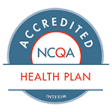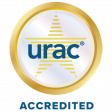
Taking Care of Yourself: Important Health Steps for New Moms
Becoming a new mom is an amazing journey. You will have lots of joy and excitement, new experiences, and maybe some sleepless nights! With all the feedings and diaper changes, it’s easy to forget about your own health. But just like you take good care of your baby, it’s really important to take good care of yourself too. This helps both you and your family.
Just as you received regular medical care during pregnancy (called prenatal care), it is just as important to get medical care after pregnancy. This is called postpartum care.
At Community Health Choice, we understand what new moms go through. We are here to help you, especially with your health for the long run after having your baby. Let’s look at three main things that are super important for new moms: checkups after your baby is born, ways to prevent pregnancy (birth control), and staying healthy by preventing problems.
Your Important Checkup After Baby: More Than Just a Quick Visit
You just finished one of the biggest changes to your life and body: being pregnant and having a baby. That’s why a checkup after having your baby is so important. It’s not just a quick stop; it’s a key step in helping your body heal and staying healthy for a long time.
When should you have it?
Most doctors suggest having this checkup about 4 to 6 weeks after your baby arrives. If you had problems during pregnancy or delivery, you might need to go sooner, maybe 1 to 3 weeks after. Your doctor will tell you what’s best for you.
What happens during this checkup?
This appointment is your chance to talk to your doctor about anything that’s bothering you. Things that will be checked:
- How your body is healing: Your doctor will see how your body is getting better after giving birth. This means checking your cut if you had a C-section (a surgery to deliver the baby) or the area around your private parts if you had a regular delivery. Your blood pressure, your weight, and your general health will also be checked. Common issues after delivery (pain, constipation, hemorrhoids, etc.) will also be addressed. If you have complex medical problems, you may need to have many visits to help you recover.
- How you are feeling inside (your emotions): After birth all moms go through hormonal changes. It’s normal for new moms to feel many different things, sometimes even a little sad or overwhelmed. Your doctor will ask about your mood changes and how you are feeling to see if you might have postpartum depression. This is when a mom feels very sad or worried for a long time after having a baby. Don’t be afraid to tell them how you really feel. Remember, many moms go through this, and there is help available.
- Breastfeeding: If you are feeding your baby milk from your body, your doctor can help you with that and talk about any struggles you are having.
- Sleep and feeling tired: Not getting enough sleep is a common thing for new parents. Your doctor can give you advice to help with feeling tired and getting more sleep when you can.
- What you eat: They can also talk about healthy foods to help your body get better and make good milk for your baby if you are breastfeeding.
- Many other things such as danger signs to look for, when to have sex and even if you are having life problems such as having enough food or a place to stay.
Why is this checkup so important?
The time after having a baby can sometimes bring health issues that you don’t expect. Your checkup lets your doctor find any problems early, such as:
- Too much bleeding
- Infections
- High blood pressure
- Thyroid problems
- Other physical problems like painful swollen legs
- Postpartum depression and anxiety (feeling very worried or scared)
This checkup also makes sure that any medical conditions that you have (including any that started during pregnancy) are stable. If you are taking medicines for health conditions, your doctor will make sure you are taking the right medicine and dose for you.
By going to your checkup after baby, you are taking a very important step to keep yourself healthy. This directly helps you take care of your new baby.
Pregnancy Loss
If you had a loss of your baby, it is very important to get a checkup. Not only will your doctor do a physical exam, but s/he will also help you get through this emotional hardship. Know you are not alone. Community Health Choice is also here to help you.
Planning for What’s Next: Understanding Ways to Prevent Pregnancy
Getting pregnant too soon after delivery may increase your chances of having problems in your next pregnancy. Planning when to have more children is important. Knowing about ways to prevent pregnancy (birth control options) is a big part of being a new mom. It lets you decide about future pregnancies and gives your body time to heal completely between babies.
It’s important to talk to your doctor about which choice is best for you. Different methods work in different ways, especially if you are breastfeeding.
Here are some common ways to prevent pregnancy to talk about with your doctor:
- IUDs (Intrauterine Devices): These are small, T-shaped pieces of plastic that a doctor puts inside your uterus (the organ where the baby grew). They can have hormones or not and can stop pregnancy for many years. IUDs work very well and can often be put in soon after you have your baby.
- Birth Control Pills: There are different kinds of pills, including some that are safe if you are breastfeeding. Taking these pills every single day is important for them to work.
- Birth Control Shot (Depo-Provera): This is a shot given every three months. It’s an easy choice for those who don’t want to take a pill every day.
- Birth Control Implant (Nexplanon): This is a tiny, thin rod that a doctor puts under the skin of your upper arm. It gives out hormones and can stop pregnancy for up to three years.
- Barrier Methods: These include condoms (for men and women), diaphragms, and cervical caps. You use these each time you have sex. They work best when used the right way along with a special gel (spermicide) that kills sperm.
- Permanent Ways: For people who are sure they don’t want more children, there are surgeries. For women, it’s called tubal ligation (often called “tying the tubes”). For men, it’s called a vasectomy. These methods are permanent.
Your doctor can explain how well each method works, including side-effects you may have, if any. Your doctor will also help you choose which method is best for you based on your health, your lifestyle, and whether you are breastfeeding.
Staying Healthy: Taking Care of Yourself Over Time
Even after your post-birth checkup, your health journey should keep going. Preventive care means staying healthy and finding problems early before they become serious. This includes regular tests, shots, and healthy ways of living.
- Regular doctor visits: Keep going for your yearly checkups, even if you feel fine. These visits are very important for watching your health and finding any changes.
- Health Tests:
- Cervical cancer tests (Pap tests): These are very important to help prevent cervical cancer. Your doctor will tell you how often you need this test.
- Breast cancer tests: Depending on your age and if close family members have had breast cancer, your doctor might suggest regular breast exams and mammograms (special X-rays of the breast).
- Blood tests: These test for conditions such as diabetes, thyroid disease, cholesterol and other conditions.
- Shots (Vaccinations): Make sure your shots are up to date, like the flu shot, Tdap (for tetanus, diphtheria, and whooping cough), and any other shots your doctor recommends.
- Healthy living:
- Eating well: Eat healthy foods to give your body energy and keep you healthy overall. This also includes drinking plenty of water.
- Exercise: Even short walks can really help your body and your mind. Talk to your doctor about when it’s safe to start exercising after your baby is born.
- Dealing with stress: Being a new mom can be stressful. Find healthy ways to handle stress, like talking to a friend, doing calming exercises, or finding a few minutes for yourself each day.
- Enough sleep: It’s hard with a new baby, but try to get sleep whenever you can. Ask your partner, family, or friends for help.
Remember, taking care of your health for the long run, during and after pregnancy, is a gift to yourself and your family. By making sure you go to your checkups after baby, understanding how to prevent pregnancy, and taking care of yourself over time, you are building a strong base for a healthy and happy future.
At Community Health Choice, we want to help Texans live healthier lives. If you have questions about your care after baby or need help finding a doctor, please call us. We are close by, and Community cares.
Sources:
American College of Obstetricians and Gynecologists (ACOG):
https://www.acog.org/womens-health/faqs/postpartum-depression
https://www.acog.org/womens-health/faqs/postpartum-birth-control
Mayo Clinic:






